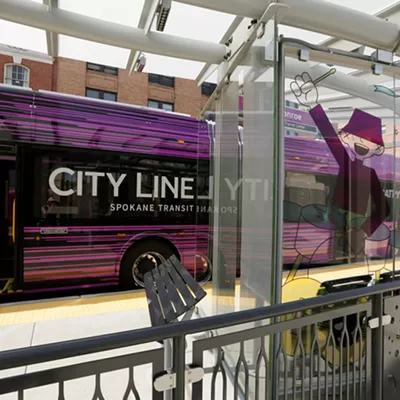On March 26, MRCTV (Media Research Center TV) randomly interviewed 10 students from American University in Washington, D.C., asking them to name one Senator currently serving in the United States Senate. One student correctly answered "Rand Paul." All others failed to identify even one Senator, but all students could name the hit song from the movie Frozen. These students were nicely dressed and obviously mainstream, and from a high-quality university. The video clip is another example that American education is failing when it concerns young people's civic knowledge. It also defines our current culture.
This spring, the nonprofit, independent foundation that bears my name has embarked on a mission to emphasize the importance of civic learning for students in Eastern Washington. The George Nethercutt Foundation is sponsoring a region-wide Citizenship Tournament for 4th-, 8th- and 12th-graders, testing their knowledge about U.S. history, economics, government and foreign policy. Winning students will receive scholarships of up to $10,000, plus a trip to Washington, D.C., or Olympia with a parent and teachers to meet political leaders and learn more about how the American system of government works. Hundreds of students have entered the competition from nearly 40 local schools.
In addition to demonstrating a basic knowledge of America, competing students completed five of 15 proposed citizenship tasks, choosing options such as writing a letter to their Member of Congress, interviewing a veteran, writing a thank-you note to a teacher or first responder, or tutoring a younger child about the importance of a national holiday. Each student competing and completing the tasks will receive a reward. The Spokane Education Association, Better Business Bureau, Boy Scouts and many others in our region support civic learning for young people and have supported the tournament.
The intent of the competition is to help students learn about the American system, and also to get students into the habit of helping others and participating in their community. Students have enhanced their civic knowledge by purchasing an Official Study Guide for the Tournament, consisting of nearly 200 multiple-choice questions and answers relevant to the tournament's subject matter. Finals will be held at the Spokane Falls Community College campus on Saturday, April 26, and are open to the public. The Eastern Washington competition will be replicated next year in the Pacific Northwest region and possibly nationally, all in an effort to help students become better informed about good citizenship.
When I taught a course in 2012 at Harvard University's Kennedy School of Government, the students there warmed to the idea of civic learning, and helped me devise a series of national questions, testing the importance of a strong civics education. This is what the survey found:
1) 74 percent of Americans believe every candidate for federal office should be knowledgeable about U.S. government, history, economics and foreign policy.
2) 85 percent believe that civic learning should be a core curriculum subject in American schools.
3) 67 percent believe every American should be able to pass the immigrant citizenship test that applicants for American citizenship must pass to become citizens.
As a result of the survey, I've patented a citizenship "app" and will offer to all federal candidates this year an opportunity to take a 20-question online test, in a multiple-choice format, surveying their knowledge of U.S. history and government. While I don't want to embarrass candidates, I believe it important that our officeholders know at least basic information about the American system of government. It matters not how many times it takes a candidate to receive an acceptable score. I don't plan to publish the results — the candidate has the option of doing so — but if the candidate refuses to take the survey, the public has the right to know why. The public also will be able to take the candidate questionnaire, because only by a concerted effort will future results like those in the MRCTV survey be avoided.
Civic learning is essential to the perpetuation of the principles that have made America great. If officeholders don't know about the principles of justice, human rights, liberty, the fidelity to the Constitution of laws enacted, American sovereignty, checks and balances and separation of powers, then the United States will suffer from a lack of Constitutional integrity. After all, the Constitution is the longest surviving document of its kind in world history, and it's only been amended 27 times. It's a blueprint worth understanding and pledging allegiance to, for it embodies the spirit of the United States, and all who have sacrificed for its security.♦

















